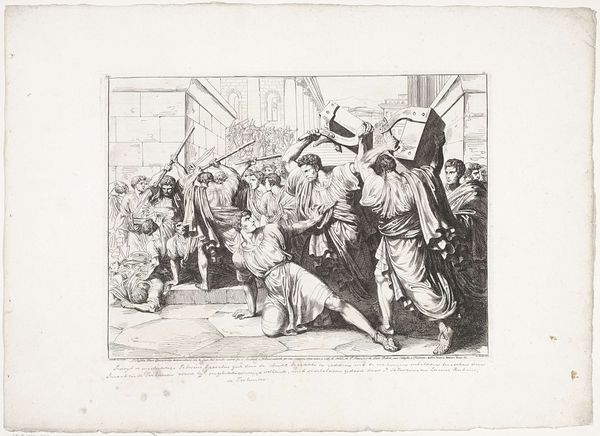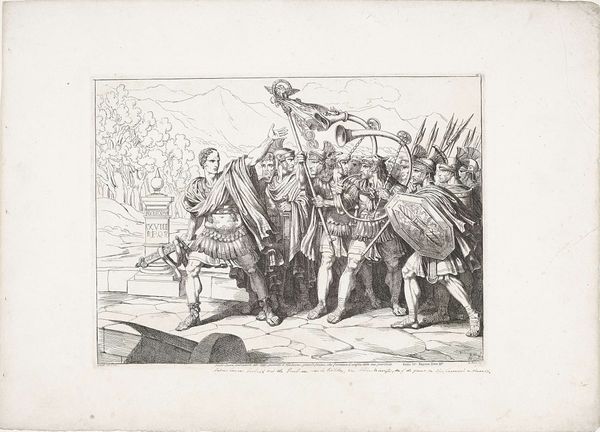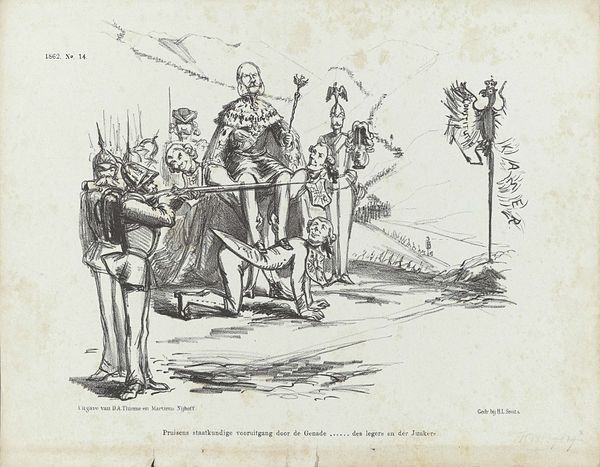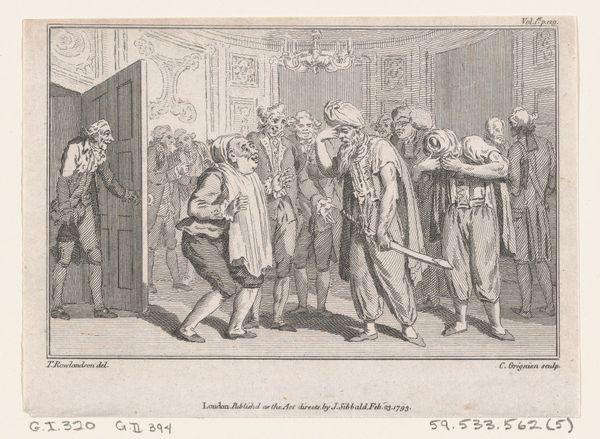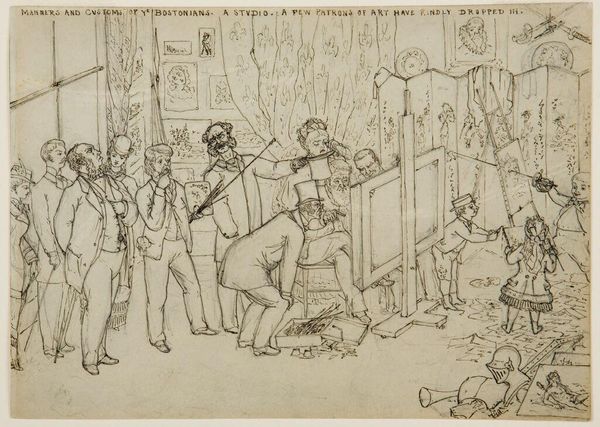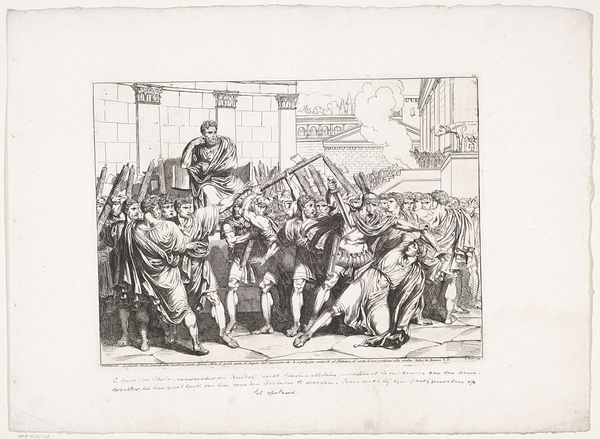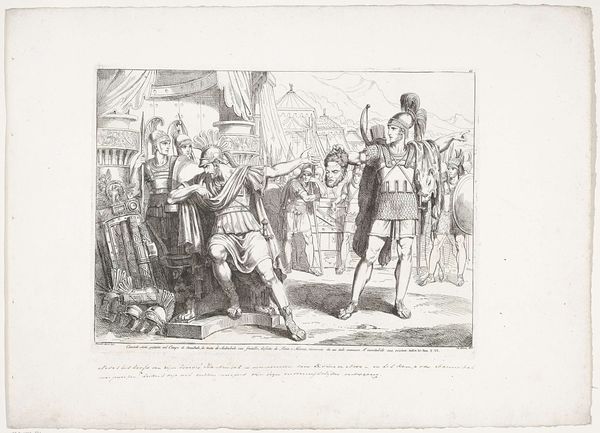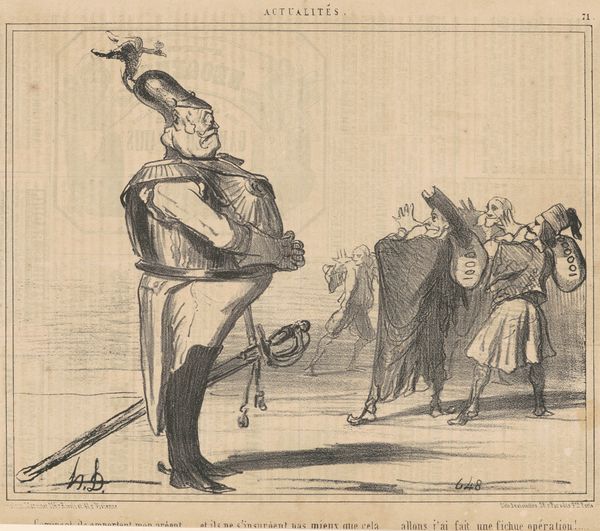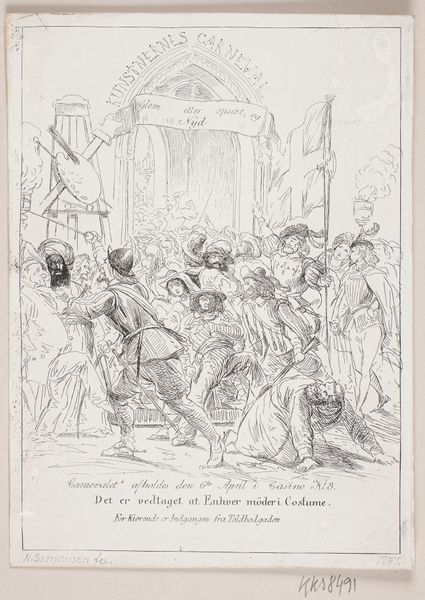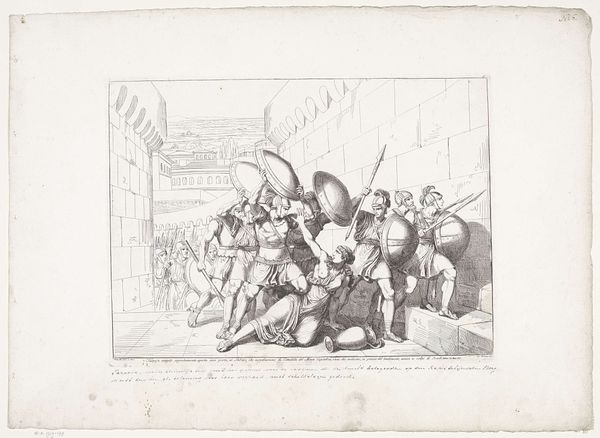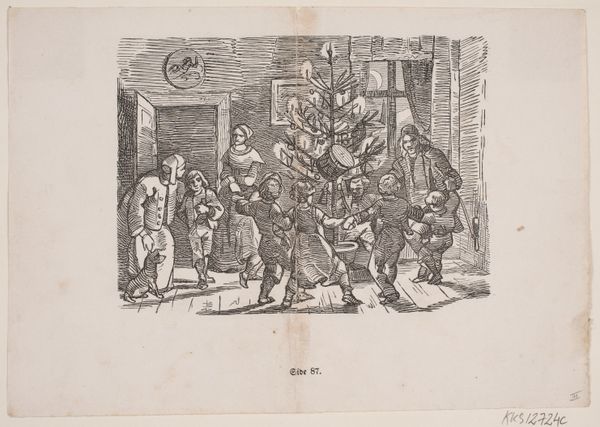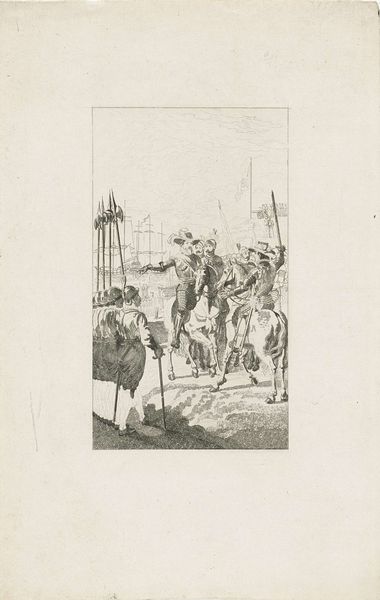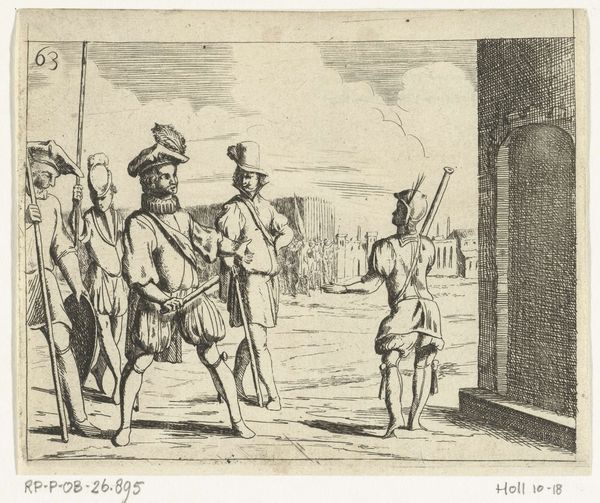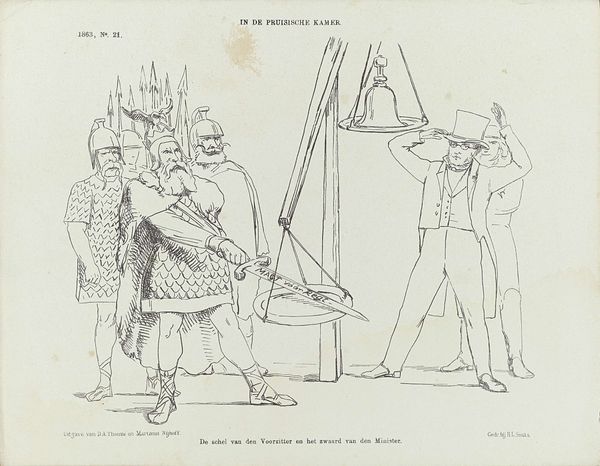
Spotprent op verouderde instellingen zoals de boogschutterijen, 1860 1860
0:00
0:00
drawing, ink, pen
#
drawing
#
comic strip sketch
#
quirky sketch
#
caricature
#
personal sketchbook
#
ink
#
idea generation sketch
#
sketchwork
#
ink drawing experimentation
#
pen-ink sketch
#
sketchbook drawing
#
pen
#
genre-painting
#
history-painting
#
storyboard and sketchbook work
#
sketchbook art
#
modernism
Dimensions: height 215 mm, width 275 mm
Copyright: Rijks Museum: Open Domain
Editor: So, this is "Spotprent op verouderde instellingen zoals de boogschutterijen, 1860," a pen and ink drawing by Johan Michaël Schmidt Crans. It's a caricature of an archery society, and it feels quite satirical, almost absurd, with the exaggerated features of the figures. What do you see in this piece, from your perspective? Curator: Beyond the immediately farcical imagery, I see a commentary on power, tradition, and societal roles within 19th-century Dutch society. The artist uses caricature to critique the ineffectiveness and perhaps the self-importance of these outdated institutions like the archer's guild. These guilds, once crucial for defense, were largely ceremonial by this point. How does this skewering of tradition relate to the broader political and social currents of the time? Editor: I hadn’t really considered it beyond the obvious satire, but the 19th century was a period of significant change, right? Revolutions, calls for reform… So this could be a commentary on resistance to change, maybe? Curator: Precisely. The exaggerated forms, the almost clownish portrayal of the archers – they point to a disconnect between tradition and modern reality. Consider the power structures embedded in these guilds: Who were its members? What did membership signify in terms of social status and influence? Editor: Probably wealthy, established citizens... so mocking them would have some bite? Curator: Yes. This image then becomes more than just a funny sketch; it's a piece of social commentary, questioning the authority and relevance of established elites and traditional power structures within a changing society. It asks us to consider who benefits from maintaining the status quo. How do you think the intended audience may have received this cartoon? Editor: Probably with a mix of amusement and perhaps discomfort from those being targeted. I see the drawing now as a pointed critique and a call to question old power dynamics. Thanks for the historical and theoretical perspectives! Curator: It's precisely by situating these images within their specific social, political, and historical contexts that we truly uncover their depth and complexity, so this was quite enlightening for me as well.
Comments
No comments
Be the first to comment and join the conversation on the ultimate creative platform.
